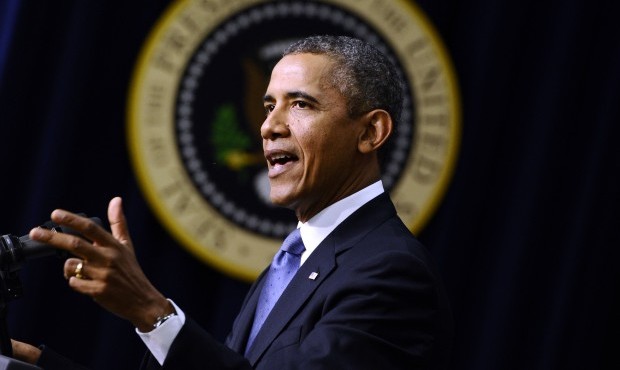Following last week’s revelations of the exchange of messages between the American and Iranian presidents, Obama came out on Tuesday to say that there are “indications” that new Iranian President Hassan Rouhani “is looking to open dialogue with the West and with the United States, in a way that we haven’t seen in the past. And so we should test it.”
The diplomatic exchange being discussed by President Obama is nothing new, particularly as he has been pursuing a diplomatic policy of extending his hand to Iran since he first came to office, exchanging messages with previous leaders, including the Supreme Guide. Additionally, Obama turned a blind eye to the 2009 Green Revolution in the hope that this would open “a window of opportunity” for negotiating with Iran. However nothing of the sort came to pass and Obama did not succeed in convincing Iran to give up its nuclear ambitions. It is true that the Obama administration continues to exert pressure on Tehran through economic sanctions; however, pursuing this diplomatic approach of openness and the policy of “testing” intentions will ultimately do no good.
Iranian policy, since the Khomeinist revolution, is clear and consistent. Even with the historic succession of leaders, from Hashemi Rafsanjani, the cunning fox, to “peace-seeker” Khatami, and the impulsive Ahmadinejad, Iran has continually demonstrated an aggressive and expansionist foreign policy towards the region in order to promote its interests. Iran has demonstrated endurance in its quest to expand its influence and borders. Its latest expansionist project is evidenced in Iraq and is a consequence of Obama’s decision to withdraw US troops from the country. And today, the US President is allowing Iran to throw a lifeline to the drowning Assad regime! Obama’s statement regarding “testing” Iran’s intentions demonstrates that Washington has yet to learn any lessons from its past experiences with Tehran, for rather than intensifying the pressure, the US is granting Rouhani an opportunity that he desperately needs, politically and economically. This is particularly the case given that Rouhani has inherited Ahmadinejad’s bitter legacy, both internationally and domestically. Regionally, Rouhani is facing a number of difficult challenges to Iranian interests, particularly if the Assad regime is toppled. This is not to mention that the Assad regime today is no longer playing the crucial role that it once did for Iran in terms of spearheading Tehran’s interests in the region, not to mention the interests of its allies, such as Hezbollah. For all these reasons, it is Rouhani who is desperately in need of a chance at diplomacy, not Obama.
The fact of the matter is that the history of the region and the West’s relationship with Iran means that it is impossible to count on Tehran. After all, actions speak louder than words. What the US administration is doing now only serves to confirm the image of Obama as a leader with a weak and hesitant foreign policy, particularly towards the Middle East. It also confirms the image of a devious Iran. If Iran was serious about improving relations with the Middle East and the West then why did it agree with the Russian initiative that is designed to save Assad? It could have taken the initiative by stopping its assistance to the Assad killing machine and instead seeking a political solution. While if Obama was serious about renewing relations with Iran then why has he appeared so determined to pursue the strategic opportunity to weaken Iran by toppling Assad. Consequently we are facing a new chapter in the chronicles of Obama’s diplomatic approach of extending his hand to Iran, which will only serve to grant Iran more opportunities.
